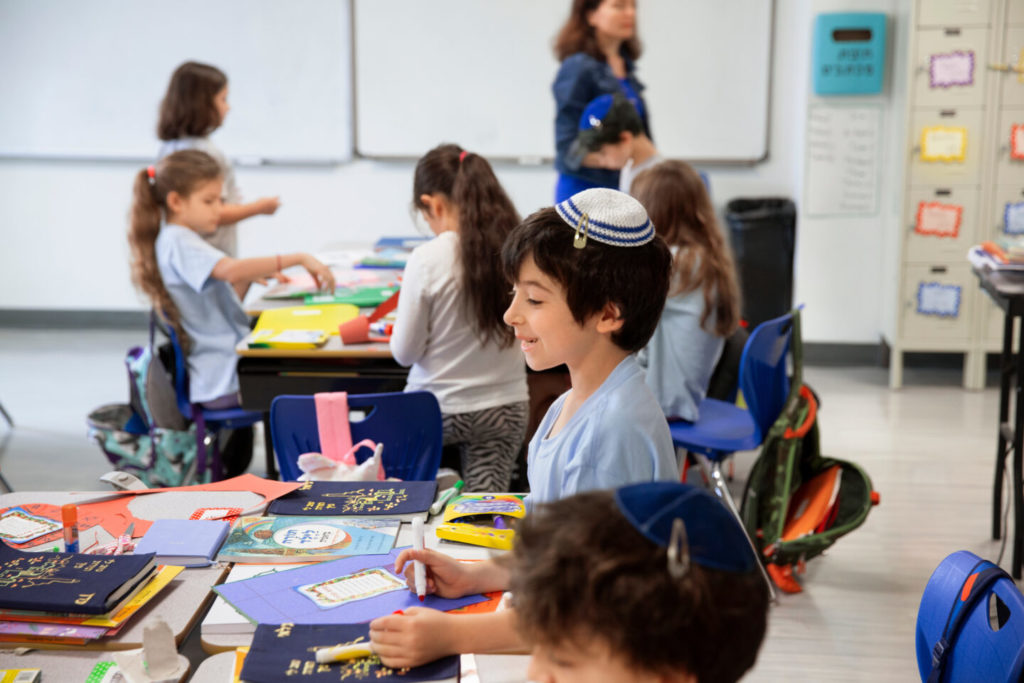NYC Department of Education accuses Orthodox Jewish schools of failing students, even though they score higher than public schools
New York City has accused Orthodox Jewish, or yeshiva, schools of not adequately educating their students in “secular” topics.
After an eight-year investigation, the NYC Department of…

New York City has accused Orthodox Jewish, or yeshiva, schools of not adequately educating their students in “secular” topics.
After an eight-year investigation, the NYC Department of Education decided 18 yeshiva schools failed to provide an education that is “substantially equivalent” to public schools, particularly in the subjects of math, English, history, and social studies.
The yeshiva schools have 1-2 years to meet the state’s standard, though some of them are resisting the government interference.
However, some government officials and the Jewish community are coming to their defense.
City Councilman Kalman Yeger praised yeshivas by contrasting them with NYC’s lackluster public schools.
“Look at our kids that are coming out of yeshivas. Look at the kids that are coming out of the public school system and then ask yourself, really, is the yeshiva system failing?” Yeger said in 2022. “What I’ll also say is what you don’t have in the yeshiva system and you do have in the public school system is rampant cheating.”
Critics claim that yeshiva schools doom their students to have poor English languages skills and live in a cycle of poverty, despite being reportedly “flushed” with public funding.
But both claims appear false.
It’s true that yeshiva schools have received $1 billion over the last four years, which the Heritage Foundation calculates to $2,500 to $5,000 per student – mere fractions of what NYC spends on its own students.
“Compared to the public schools, the yeshivas barely receive a drop in the bucket,” Heritage concluded.
The average per-pupil funding in the state of New York is $25,000. In NYC, per-pupil K-12 funding will soon exceed $40,000 – more than the annual average tuition for a private university.
And yeshiva schools don’t seem to be perpetuating a cycle of poverty, either. A study from 2021 revealed that Haredi – or Orthodox Jewish – households have a median income of $136,000. And two-thirds of families make more than $100,000 annually.
What are yeshiva schools?
Yeshiva schools are focused on the study of Rabbinic literature. They can be elementary, secondary, or post-secondary institutions.
“Let’s evaluate the quality of a Yeshiva education. Hasidic boys as young as nine years old attend school for nearly 10 hours a day during school days which is substantially longer than public school students,” Yossi Gestetner, co-founder of the Orthodox Jewish Public Affairs Council, wrote in 2019.
“Judaic studies in Yeshiva encompass the disciplines of history, geography, and mathematics,” Gestetner continued. “Later in the day, Yeshiva curriculum includes English instruction and science. Those subjects are taught in multiple languages including Hebrew, Yiddish and English. As such, Yeshiva students are exposed to the core topics required to earn a General Equivalency Diploma (GED).”
Not every yeshiva school meets the general standard of academic rigor, just as some public schools nationwide often fall short of teaching their own students the very basics of English and math.
Recent data revealed only 38% of New York’s students are proficient in English and just 34% are proficient in math.
And while the state is pointing the finger at yeshiva schools for allegedly failing their students, yeshiva advocates are pointing at the public school system.
“If you want to talk about equivalency, we should talk about the public school system being unable to measure up to the standards of the yeshiva system,” said state Assemblyman Simcha Eichenstein, D-District 48, who is a graduate of yeshiva schools.
As recently as 2018, yeshiva schools were shown to far outscore NYC public schools, reported The Jewish Press.
Moshe Krakowski, an expert in American Haredi education and culture, acknowledges that yeshiva schools put a lesser emphasis on “secular” topics than public schools.
But, he argues, the benefits of a yeshiva education are extraordinary.
“Pragmatically speaking, which best prepares students for future success?” Krakowski asks. “Even given [yeshiva] schools’ acknowledged limits in secular instruction, I’d be hard pressed to pick the secular track.
“The critical thinking, textual analysis, reading comprehension, argumentation skills; the historical knowledge, the foreign language acquisition, the legal concepts; indeed, the Jewish culture, tradition, and ethical behavior … embedded in these schools’ religious study are genuinely remarkable.”



